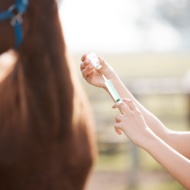Livestock transport laws too vague, study finds
“All studied countries fall short in guaranteeing adequate protection to livestock during transport” – Ben Lecorps.
Animal transport regulations are failing to adequately protect livestock on long journeys, according to a new study by academics from the Universities of Bristol, Essex, and British Columbia.
The researchers conducted a ‘fitness check’ on existing laws in the EU, the UK, the USA, Canada, Australia, and New Zealand, focusing on four major welfare risk factors: fitness for transport, journey duration, climatic conditions and space allowances.
Assessing the regulations in light of relevant scientific literature, they found that the majority of the laws were insufficient or too vague to be considered fit for purpose. For example, current EU space allowances fail to provide heavy cattle with the space that scientists have found they need to move between laying down and standing.
The team also looked at some proposed changes to the law. They highlighted that the UK’s planned ban on the export of livestock for slaughter from Great Britain will only apply to certain species, meaning that animals such as poultry will not be covered.
Ben Lecorps, study co-author and Animal Welfare lecturer at the Bristol Veterinary School, said: “All studied countries fall short in guaranteeing adequate protection to livestock during transport.
“Whilst this does not mean that all animals transported will experience serious harms, major risk factors such as excessively long journeys, or journeys during hot weather, are not being addressed to a satisfactory level.”
Eugénie Duval, study co-author and lecturer in Law at the Essex Law School, said: “Even if they do not necessarily reflect the latest scientific evidence, some regulations are more specific than others.
“If we were to take the best from each regulatory framework (e.g. fitness for transport in Canada; providing species-specific thresholds for the temperature inside vehicles in the EU) and apply some of the propositions made by some countries (e.g. a ban of export outside the EU borders: proposition of some EU member states), the ensuing regulations would be a major step closer to safeguarding animal welfare during transportation.”
The study, which was funded by the Hans Sigrist Research Prize and a grant from the Humane Slaughter Association, has been published in the journal Royal Society Open Science.
Image © Shutterstock



 Zoetis UK has apologised for a supply shortage of Equip Artervac, caused by a manufacturing issue.
Zoetis UK has apologised for a supply shortage of Equip Artervac, caused by a manufacturing issue.